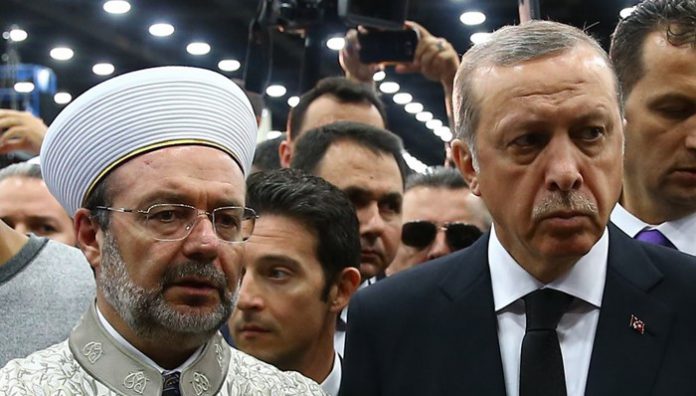Turkish imams spied on Gülen sympathizers in Romania as well

Date posted: April 2, 2017
A report published by The Black Sea news website on Saturday revealed that imams from Turkey’s Religious Affairs Directorate (Diyanet) spied on people sympathetic to Turkish Islamic scholar Fethullah Gülen and the movement he inspired in Romania as well.
According to the report, following a July 2016 coup attempt in Turkey, a memo from Turkey’s counselor for religious affairs in Bucharest, Osman Kilic, was sent to the Diyanet in Ankara on Sept. 27, 2016.
This document includes a list of 11 schools, kindergartens and one university that are part of the Lumina Educational Institutions, which have been active in Romania since 1994.
“The Turkish Embassy in Bucharest has told us it ‘does not have any information’ about this correspondence. But documents from the same cache, seen by the European Investigative Collaborations Network, have been confirmed by other Turkish diplomatic missions,” said the report.
“There are tough allegations that the Turkish Embassy is blocking the release of vital documents to Turkish citizens and cancelling their passports — forcing them to stay in Romania, and ‘blackmailing’ parents into pulling their children from Gulenist schools,” added the report.
Turkey’s worldwide monitoring
A report published by German Der Spiegel magazine on Friday revealed details of Turkey’s spying activities on people linked with the Gülen movement around the world.
Evaluating diplomatic cables containing information collected by Turkish diplomatic missions in 35 countries, Der Spiegel wrote: “Turkish embassies in Nigeria, Australia, Kenya and Saudi Arabia have all reported on the schools in those countries they believe to be affiliated with the Gülen movement. They document the organizations in which Gülen supporters are active and the media they write for. They also outline the relationships of the alleged supporters to each country’s government.”
Source: Turkish Minute , April 2, 2017
Tags: Europe | Persecution of Hizmet by Erdogan | Romania | Turkey |
Related News

International panel on Mary was held in Istanbul
An international panel, titled “Mary in the Holy Scripture and Qur’an,” was jointly held by the Journalists and Writers Foundation’s (GYV) Intercultural Dialogue Platform (KADİP), the Tevere Institute and İzmir Intercultural Dialogue Center (İZDİM) at WoW Hotel in Istanbul. The two-day meeting was attended by a number of leading scholars and intellectuals of the field and focused on such topics as “Approaches to Mary,” “Debate on Mary,” “Mary Doctrine and its Historical Development.”

Leaked photo shows 11 hijabi women, 2 babies in Bursa prison on terror, coup charges
The women are accused of having a membership in the Gülen movement, accused by the Turkish authorities to mastermind a coup attempt on July 15, 2016. The movement denies any involvement.

Erdogan opponents being monitored in Denmark
According to a letter sent from the Turkish Embassy in Denmark to the Turkish government, opponents of the Erdogan regime living in Denmark are being monitored. The letter, which the Danish newspaper Kristeligt Dagblad has come into possession of, has been confirmed by Adnan Bülent Baloglu, the embassy’s religious adviser.

Powerful but reclusive Turkish cleric – BBC’s interview with Fethullah Gulen
Fethullah Gulen has been called Turkey’s second most powerful man. He is also a recluse, who lives in self-imposed exile in the US.

Ankara-supplied clerics spy on Turkish-Australian communities
Turkish imams preaching in Melbourne and Sydney mosques have been instructed to spy on Australian supporters of Fethulah Gulen, an exiled cleric blamed by President Recep Erdogan for the failed July coup bid in Ankara.

For Turkish exiles in New Hampshire: No way back
A Turkish family of four has settled in New Hampshire, fleeing a crackdown in their homeland that has led to the arrests of thousands of civil servants. They can’t go home but they can’t stay here forever; the tourist visas that brought them here will expire. So they wait, and they worry.


















